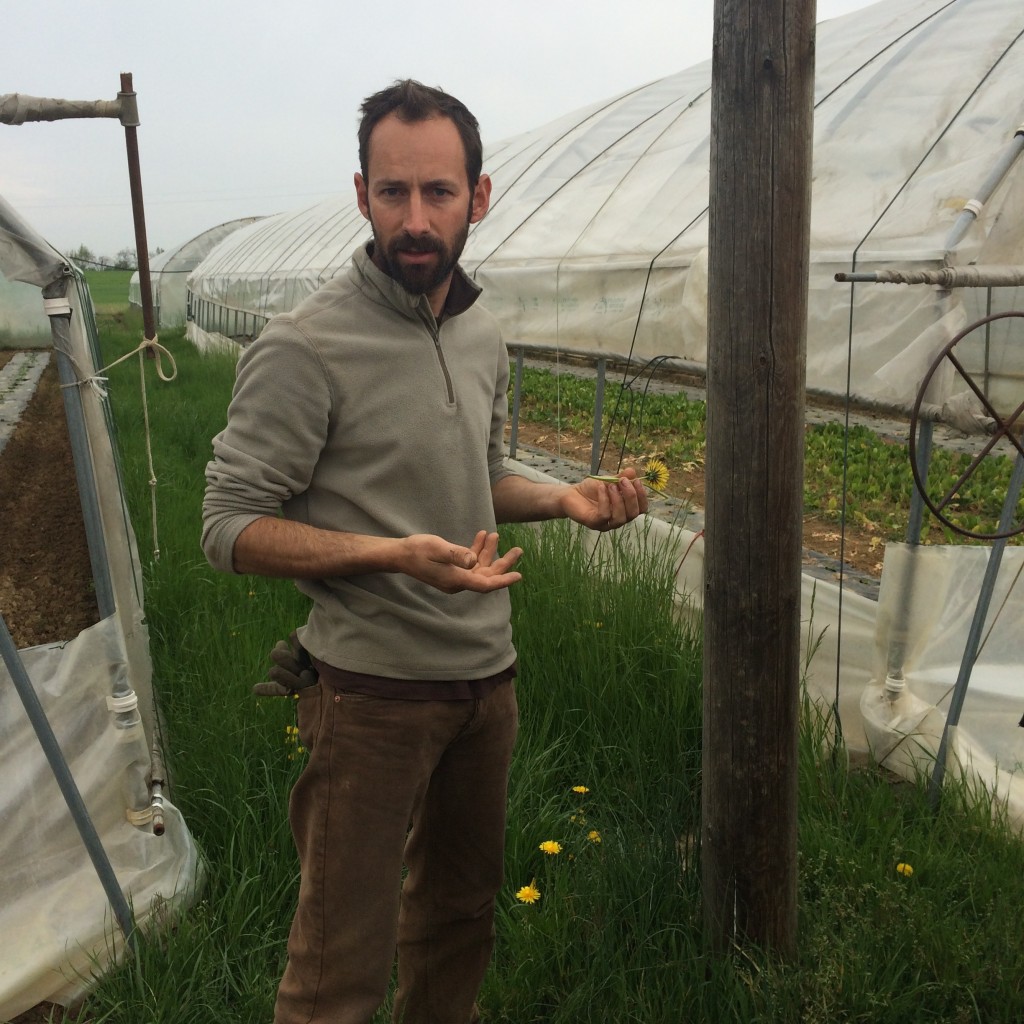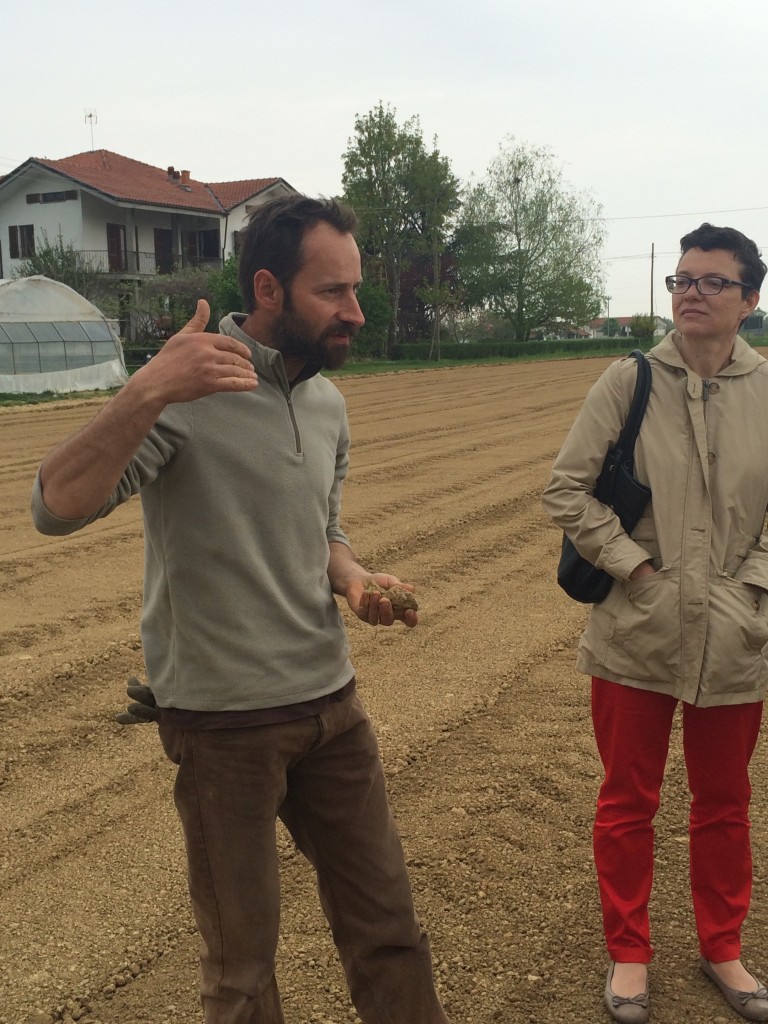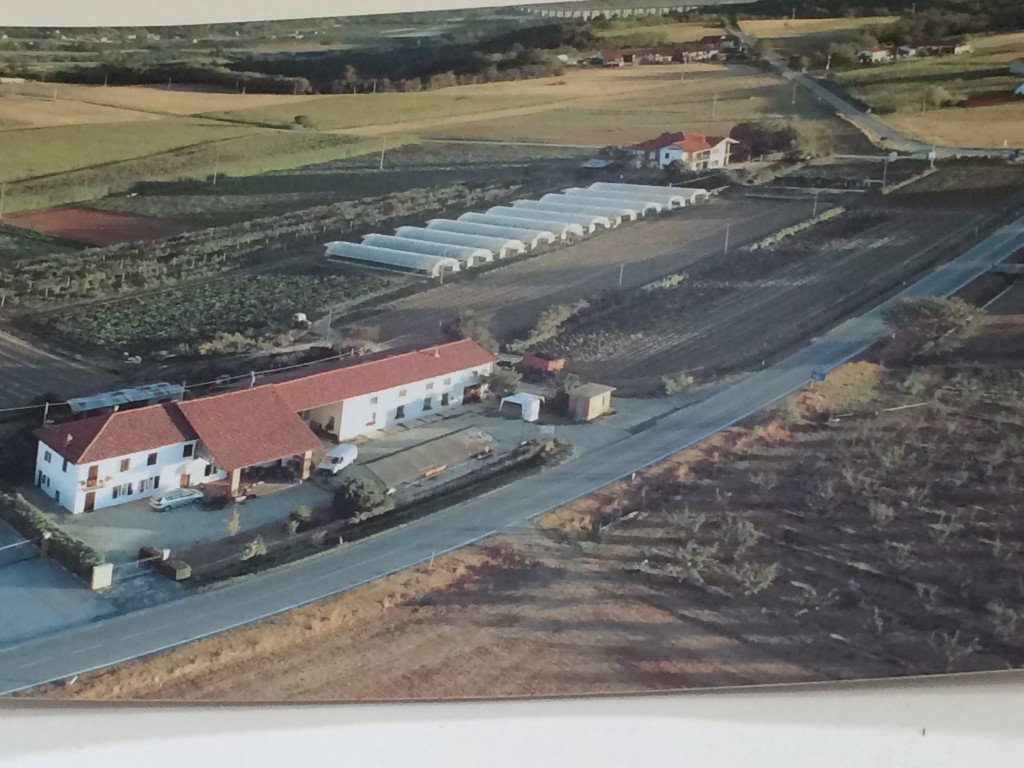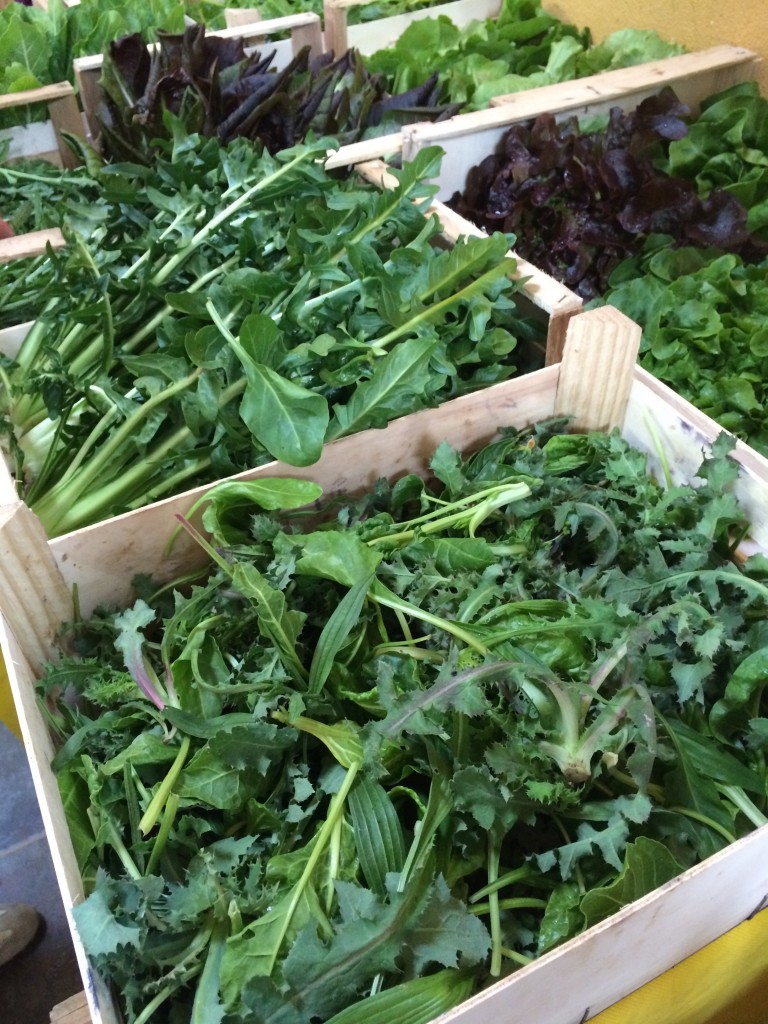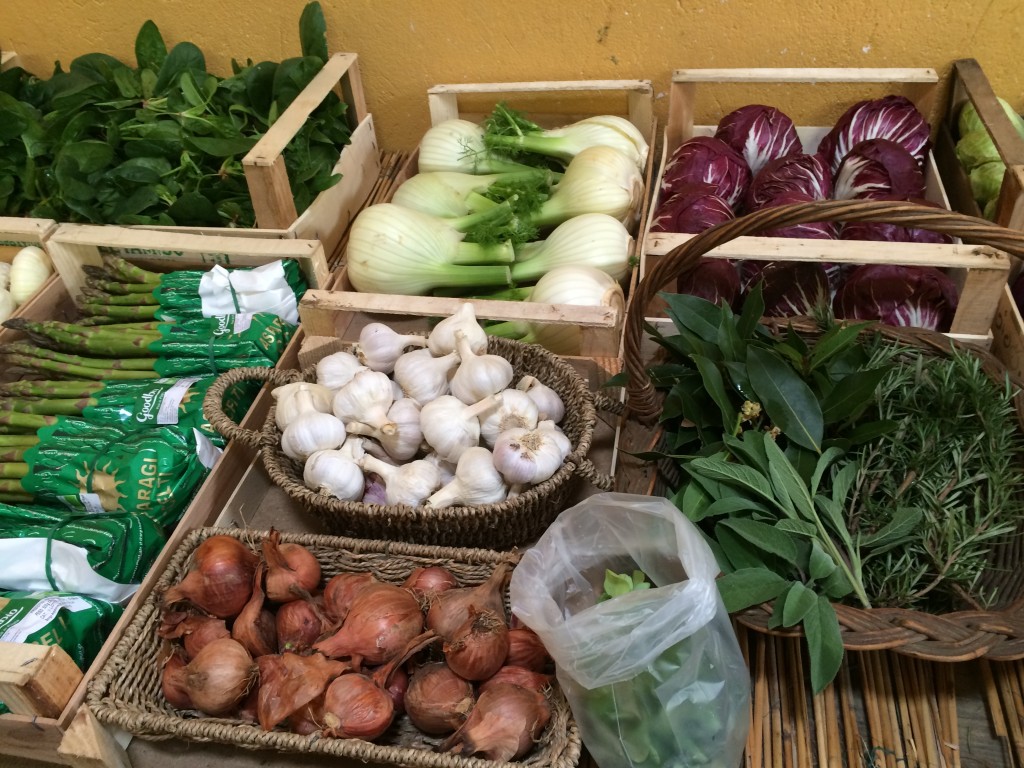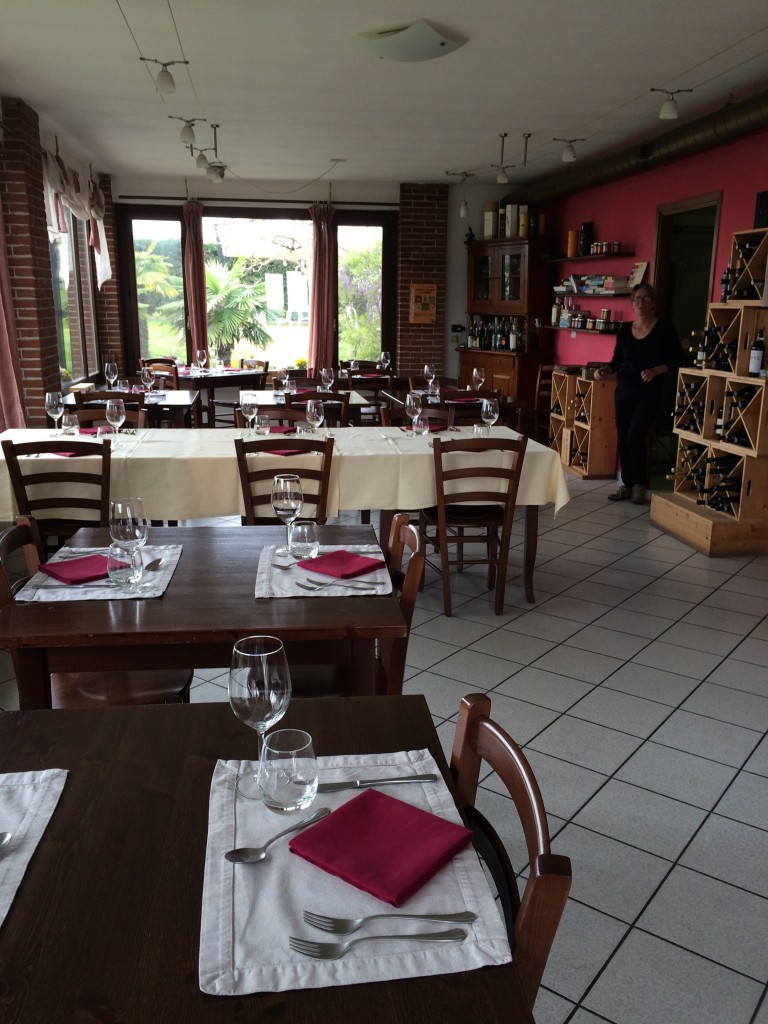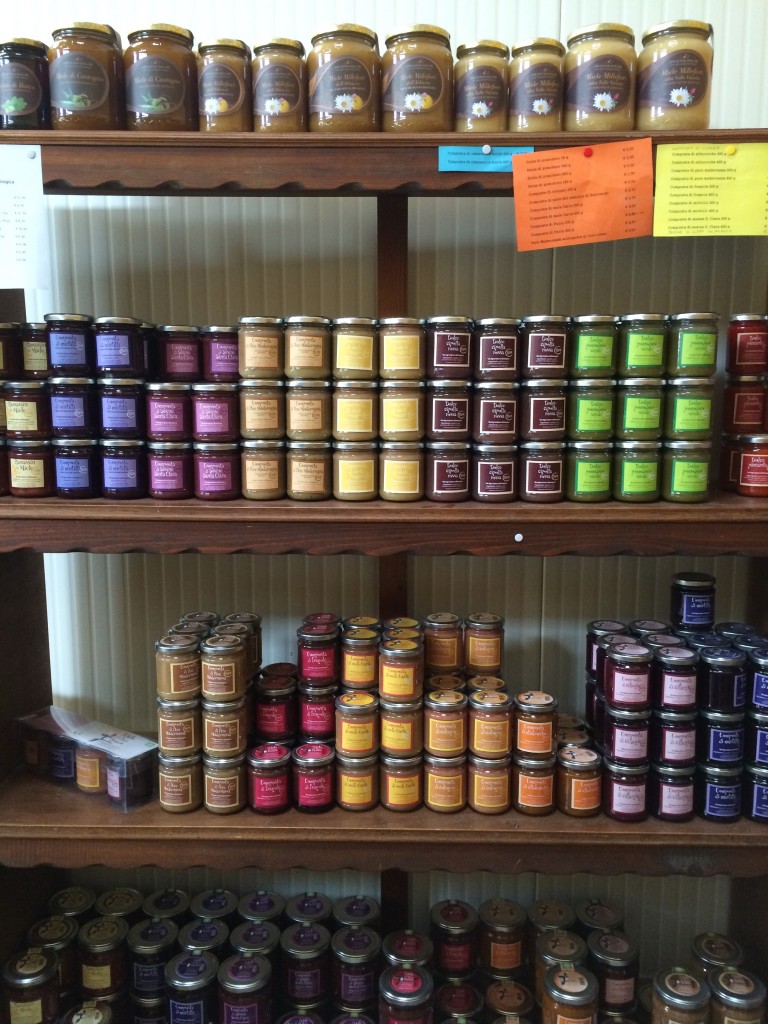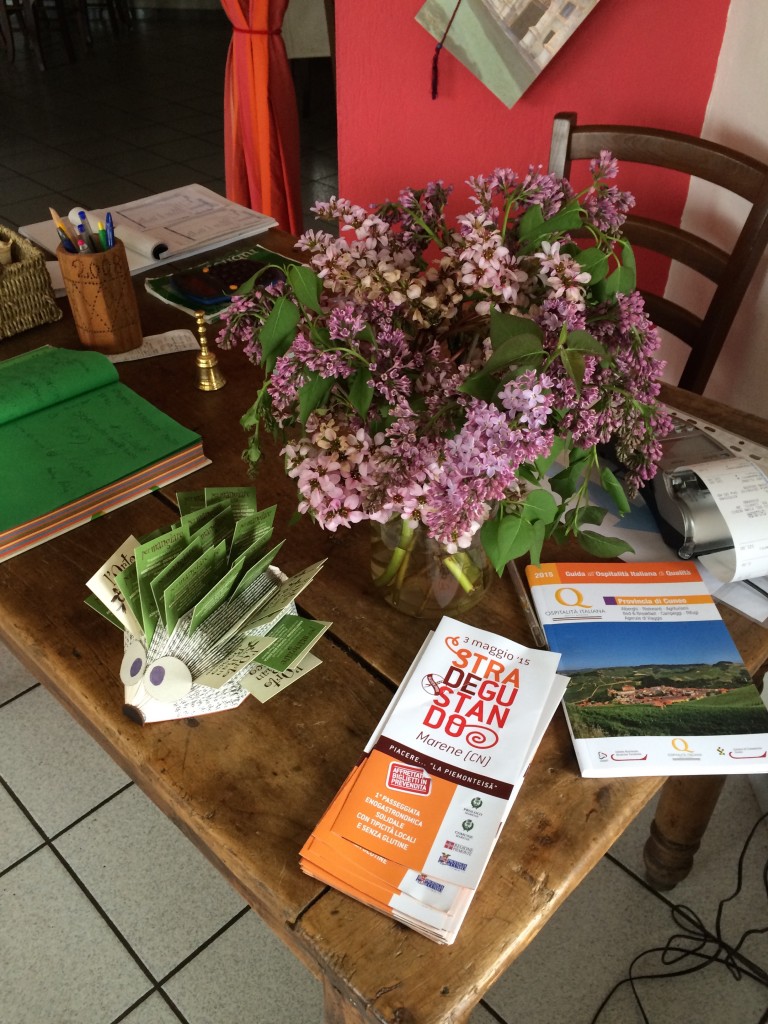The Pioneering Organic Farmer of Fossano
Meet Andrea Giaccardi of l’ Orto del Pian Bosco, a 40-something organic farmer in Fossano (CN) in the northern Italian region of Piedmont.
Andrea is a pioneer in these parts.
Not just because the median age of farmers in Italy is 66, but also because organic farming in this region of Italy is treated with suspicion by most of his neighbours, including his cousin who has a nearby farm.
He’s also a pioneer because most young people abandon their family farms to look for work in the cities, and because farming is considered low status in Italy.
Between 2000 – 2010, a staggering 775,000 farms were lost in Italy, an average of 25%-30% annually, a virtual elimination of the peasantry.
I met him recently on a study trip organised by Paola Migliorini, Assistant Professor in Agronomy and Plant Production Systems at the University of Gastronomic Sciences in Pollenzo.
“My father didn’t want me to work in agriculture because it’s so hard to make a living,” he told us in his softly spoken voice.
“He was a pig farmer, and also grew some cereals, peppers, zucchini and hazelnuts. But then the bottom dropped out of pig farming.
“I went to Uni and studied Natural Sciences so I was environmentally oriented. At the same time, I worked on the farm, but dropped out of Uni after 7 – 8 years.
“My aim was to boost the biodiversity of the family farm and encourage useful insects.
“At first, my parents were very dubious about the organic method. They used a lot of fertilisers, but didn’t know why. Now I produce just as much but without the use of artificial fertilisers.”
An intense, trim, passionate man, Andrea has been farming organically since 1997 and grows vegetables on five hectares. He also has hazelnuts and plum trees on various tracts of nearby land, some of which are 3Km away.
“I am the only organic farmer around here and I am alone,” he said with no trace of self-pity.
“I grow about 50 different varieties of vegetables and herbs which include tomatoes, zucchini, celery, peas, radishes, rocket, pumpkins, onions, lettuces, basil and parsley so that I can rotate and change them each year. I also sell about 500Kg organic wild weeds annually – a lot of them grow between the plum trees.”
Horticulture is not well developed in the region and most family farms are devoted to vineyards and white Piedmontese cattle.
“There’s a strong resistance to organics in Piedmont,” said Paola Migliorini. “Farming here is still very conventional with the use of pesticides and insecticides. Families try to maximise the use of their land for income and there is little integrated pest management.
“Sicily, Calabria and Puglia have a much higher proportion of farmland dedicated to organics because their regional governments subsidise organic farmers; and in Tuscany farmers began to convert to organics 15 years ago because they realised they could get a better price for their produce.”
As Andrea showed us around his around his farm, it became clear just how dedicated and passionate he is about working with nature and not using chemicals or artificial fertilisers on his land – and how well he treats his workers.
Standing near him on the open glacial plain where most of his vegetables are grown, I often had to strain to hear what he said due to barking dogs and trucks passing on the nearby road.
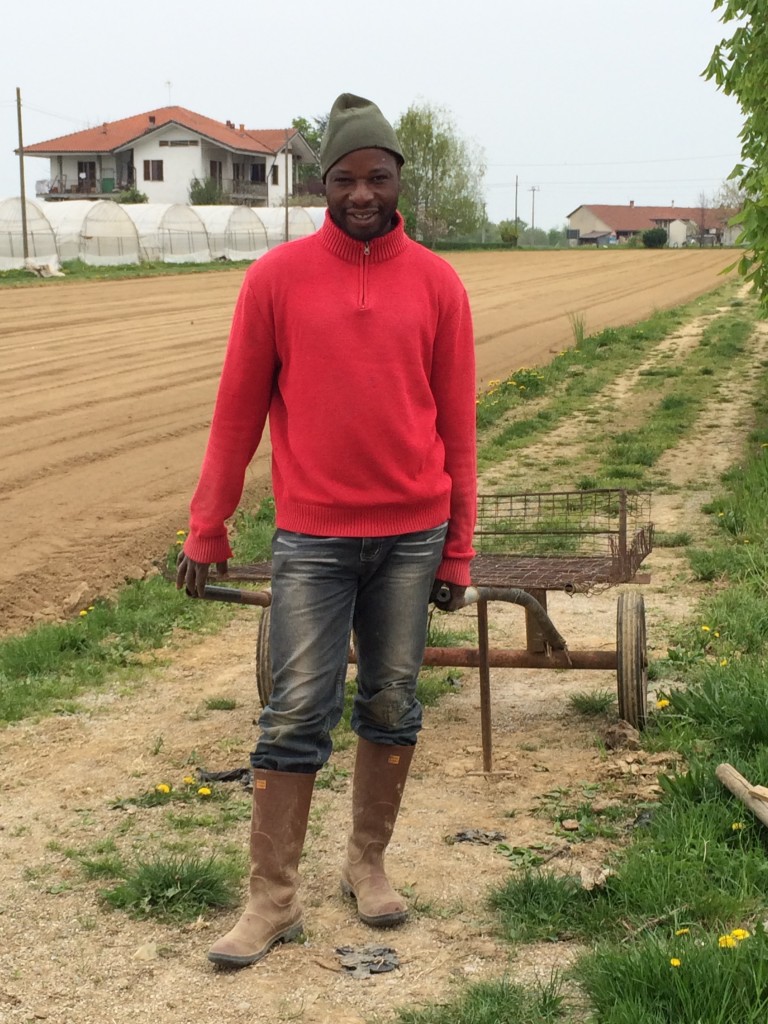 “It took about three years to convert my father’s pig farm to organics,” he said. “There wasn’t much chemical residue because it was mostly forage.
“But now my problem is that some of the land I rent is situated between conventional farms which means I do not have full control over what happens.”
As he spoke, a neighbour was busy on his tractor planting corn without respect for the boundary between the two farms.
“Farmers around here don’t understand why I converted to organics and they don’t want to know. They often change the goalposts. There is no dialogue.”
Yet despite the many obstacles faces, Andrea continues to reinvest in the farm, buying new equipment and opening a shop outlet so that he can sell direct to consumers. Four years ago, he opened a restaurant on the property with help from his sister Irene.
She has also helped him up set up a laboratory where they make and pack preserves by hand.
“In summer, we make up to four different preserves a day. When the plums are ripe, each tree can produce 25kg – 40kg so if we don’t sell them really fast, we can preserve them. Same for the Cuore di Bue tomatoes. We produce about 50,000 bottles a year.
“And our hazelnuts have done really well this year in Paris and Bretagne where people appreciate the flavour of Piedmont hazelnuts”.
Much of the work is seasonal. From April to December he works 6am -12 noon, then from 5pm -10pm. His African workers, one of whom lives with him, put in eight hour days while his wife Manuela spends hours each day on the phone searching for potential markets.
“I sleep in winter,” he said with a smile.
The good news is that there is more demand now for organic food than there was when he started 18 years ago.
“If Andrea had farmed conventionally, he wouldn’t have survived,” said Paola.
“He’s now getting a good price for his organics because the market is larger.”
One of the authors Paola suggested we read before visiting the farm was Wendell Berry’s The Pleasures of Eating in which he writes:
One might begin with the illuminating principle of Sir Albert Howard’s, that we should understand “the whole problem of health in soil, plant, animal, and man as one great subject.” Eaters, that is, must understand that eating takes place inescapably in the world, that it is inescapably an agricultural act, and how we eat determines, to a considerable extent, how the world is used. This is a simple way of describing a relationship that is inexpressibly complex. To eat responsibly is to understand and enact, so far as we can, this complex relationship.”
“It took about three years to convert my father’s pig farm to organics,” he said. “There wasn’t much chemical residue because it was mostly forage.
“But now my problem is that some of the land I rent is situated between conventional farms which means I do not have full control over what happens.”
As he spoke, a neighbour was busy on his tractor planting corn without respect for the boundary between the two farms.
“Farmers around here don’t understand why I converted to organics and they don’t want to know. They often change the goalposts. There is no dialogue.”
Yet despite the many obstacles faces, Andrea continues to reinvest in the farm, buying new equipment and opening a shop outlet so that he can sell direct to consumers. Four years ago, he opened a restaurant on the property with help from his sister Irene.
She has also helped him up set up a laboratory where they make and pack preserves by hand.
“In summer, we make up to four different preserves a day. When the plums are ripe, each tree can produce 25kg – 40kg so if we don’t sell them really fast, we can preserve them. Same for the Cuore di Bue tomatoes. We produce about 50,000 bottles a year.
“And our hazelnuts have done really well this year in Paris and Bretagne where people appreciate the flavour of Piedmont hazelnuts”.
Much of the work is seasonal. From April to December he works 6am -12 noon, then from 5pm -10pm. His African workers, one of whom lives with him, put in eight hour days while his wife Manuela spends hours each day on the phone searching for potential markets.
“I sleep in winter,” he said with a smile.
The good news is that there is more demand now for organic food than there was when he started 18 years ago.
“If Andrea had farmed conventionally, he wouldn’t have survived,” said Paola.
“He’s now getting a good price for his organics because the market is larger.”
One of the authors Paola suggested we read before visiting the farm was Wendell Berry’s The Pleasures of Eating in which he writes:
One might begin with the illuminating principle of Sir Albert Howard’s, that we should understand “the whole problem of health in soil, plant, animal, and man as one great subject.” Eaters, that is, must understand that eating takes place inescapably in the world, that it is inescapably an agricultural act, and how we eat determines, to a considerable extent, how the world is used. This is a simple way of describing a relationship that is inexpressibly complex. To eat responsibly is to understand and enact, so far as we can, this complex relationship.”

One of Andrea’s workers, upright after the backbreaking work of planting hundreds of Tropea onion seedlings

